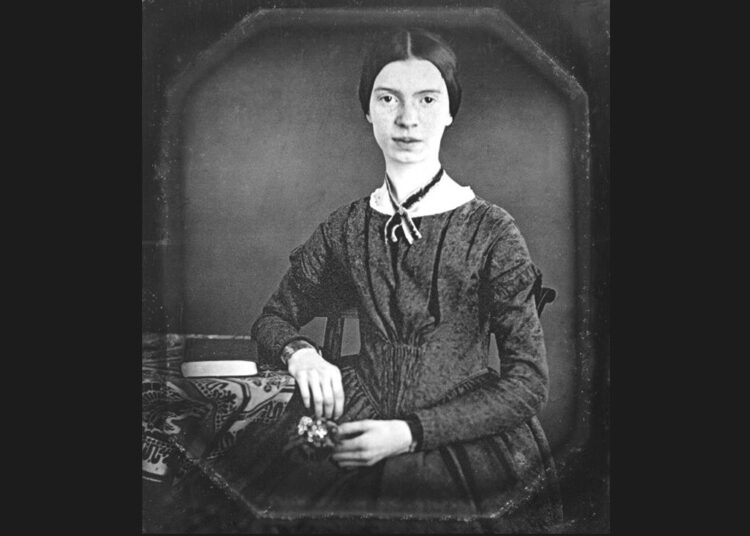Emily Dickinson: A Brief Synopsis
Emily Dickinson
Wished Mr. Higginson
Hadn’t been so loath
Her poems to critique.
Higginson, piqued
At her rhyme and her syntax,
Wished he could toss them
Right into next week.
Em then dissembled—
She loved to seem small, for
It lessened the hurt
Of responses like this.
She spoke from the hallways
And hoped that he’d always
Remain in her life
And perhaps give her bliss.
Was there a romance?
Only a slight chance,
For he thought that Em was
A bit of a bat.
She served him some sherry,
But that was as merry
A time as they ever
Would have—that was that.
The Ballad of Fruit Salad
The apple girds against its fate,
A plum lies passive on the plate.
Bananas, naked, peeled away,
Are sliced against a roundelay
Of mangoes, berries, pears and such
That cringed before the whetted touch
Of blade against their ruddy skins,
Then swayed to tossing’s gentle spins.
Small daily expirations. Salad
Made from fruit deserves a ballad.
A Summer Hour
A burgeoning bush, some butterflies,
Low wooden steps, warped, faded, rise
Amid the calm of idle talk—
The blur of shadows on the walk.
Sometimes a passing, random thought
Within winged fantasy is caught,
While puffed clouds in a bowl of blue
Lie quiet in the overview.
Inconsequential bits of light
Form auras there, against the night.
Sally Cook is both a poet and a painter of magical realism. Her poems have also appeared in Blue Unicorn, First Things, Chronicles, The Formalist Portal, Light Quarterly, National Review, Pennsylvania Review, TRINACRIA, and other electronic and print journals. A six-time nominee for a Pushcart award, in 2007 Cook was featured poet in The Raintown Review. She has received several awards from the World Order of Narrative and Formalist Poets, and her Best American Poetry Challenge-winning poem “As the Underworld Turns” was published in Pool.
















Three lovely, painterly poems, especially, “A Summer Hour”, although all three beg re-reads.
Sally Cook is both a painter and a poet. Her poems have a definite painterly feel to them, as if she were working in colors and shapes more than with mere words. There’s an old Latin aesthetic maxim: “Ut pictura, poesis.” This means “”As with painting, so also with poetry.” The idea behind this is that a poet must use language in ways that evoke not just thought, but also visual imagination, pictorial remembrance, and scenes both real and fantasized.
There is a major split between poets who primarily deal with thoughts, arguments, reasoning, and intellectualizing; and those poets who deal with what can be seen or remembered or visualized. The former are basically rhetoricians and/or debaters, while the latter are the true practitioners of fictive mimesis.
Why did Plato fear and dislike poets? Simple — he was an incurable intellectualist, fixated on thoughts and logic, and he could not tolerate fictive mimesis with its imaginative fantasy and use of real-world experiences and perceptions to create the artifacts called poems. For someone who lived in the realm of abstract ideas, the whole process disgusted him.
A poet like Sally Cook comes along very rarely. Her fierce attachment to what she can see and feel and touch and remember has made her poetry both earthly and sublime.
Three totally different pieces. I loved the humour of the ‘Synopsis’, the whimsicality of ‘The Ballad of Fruit Salad’, and your eye for detail and the imagery in ‘A Summer Hour’.
Thanks for the reads, Sally.
Delightful poems, Sally!
These are delightful poems, Sally!
Sally, you have a magic creative touch to your poetry with imagery that is always luminescent and satisfies the visceral senses.
Dearest Sally – unique, engaging, tangible and beautiful – your poetry is a pleasure to read and inspires me, as ever. Thank you for making my day brighter.
Still up to your old tricks, I see. Your take-down of old Em is priceless. It isn’t easy to turn tragedy into comedy. Sally on!!